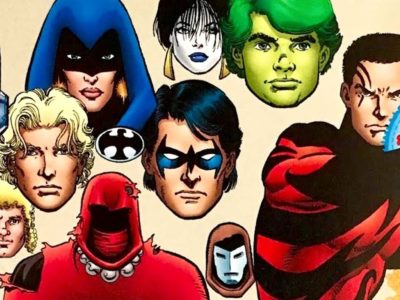
[ad_1]
A somewhat non-conventional legacy character, America Chavez earned fans and controversy before making her live-action MCU debut.
Doctor Strange and the Multiverse of Madness is not only introducing multiversal variants of existing Marvel Cinematic Universe characters but also brand new ones. One of the new heroes showing up on the big screen is America Chavez, whose portal-based powers make her right at home in the multiverse transversing film.
In comics, America has proven a controversial figure. Introduced quietly in a well-regarded but little read limited series, she was initially a cult favorite. However, as her profile rose, a section of fandom became increasingly agitated and angered by her presence. Despite being a character of relatively small presence in comparison to, say, a Wolverine, these readers carried a disproportionate distaste for her. Before she punches her way onto the big screen, check out her origins, some of her more contentious moments, and how the MCU will likely handle her character.
Who Is America Chavez in the Marvel Comic Books?
America Chavez was created by Joe Casey and Nick Dragotta, debuting in 2011’s Vengeance #1. However, fans would have to wait until she joined the Young Avengers for her (first) origin story reveal. Hailing from the dimension known as the Utopian Parallel, America’s mothers raised her in a supportive environment. When danger threatened the realm, her parents sacrificed themselves to save her. Feeling as though the realm did not need her, she left her sorrow behind. Powered by incredible energy, she took on the title of Miss America and tapped her interdimensional portal abilities to leap to different worlds, becoming a superhero.
While Chavez wasn’t the only person in the Marvel Universe to use the name Miss America, her predecessor was a largely forgotten Golden Age heroine. Nonetheless, she typically just goes by “America,” something that feels like a better fit anyway than the relatively out-of-date sounding “Miss America” moniker. While possessing a different powerset, look, and attitude, one thing she did share in common with her predecessor was the name didn’t actually indicate much of a connection to the legacy of Captain America.
Before long, even this short sketch of an origin ended up revealed as false. Instead, the recent America Chavez: Made in America series portrayed her as the daughter of two human doctors, most definitely not interdimensional aliens. This revelation came courtesy of America’s long-lost sister, Catalina, also introduced in the series. Catalina described a situation in which their mothers died trying to save them from experimentation by false benefactors. America’s sister went on to suggest the interdimensional version of her life that Chavez insisted upon was a coping mechanism to process their separation and their mothers’ fatal sacrifice.
How America Chavez Has Become Controversial
While definitely a character with plenty of fans, America Chavez became highly controversial as a Young Avenger. For one, her abilities – which include superhuman speed, strength, unlimited interdimensional travel, and the power to dispel destructive star bolts – were often cited as making her overpowered. For some, this felt unfair or “unearned,” as she was a relatively new character.
Others reacted badly to revelations about her bisexuality, hinted at in previous appearances and confirmed in the poorly received – by fans and non-fans alike – 2017 America limited. This series also galled some as it included the statement that she “identified” as Latinx instead of simply being of that heritage. This was, of course, done to explain her appearance and cultural signifiers despite being an alien. Superman never had to jump through such hoops!
However, outside of that title, America has been a part of predominantly critically well-received books, including the aforementioned Young Avengers and appearances in Kate Bishop’s Hawkeye title. While she has had loud detractors, it bears repeating that she also rapidly amassed a relatively large and vocal fanbase. Her woes, in part, can be attributed to increased profile coinciding with a time when comics fans have increasingly dug in about “politics” in comics and a particular contingent reacting with venom to what they insist is “forced diversity.”
As a character, America’s usually shown as a somewhat stony individual, being more observant than obnoxious and talkative. These qualities made her a strong figure within the Young Avengers, standing alongside the similarly star-spangled Patriot. Working alongside older heroes like Carol Danvers in the book The Ultimates, her admiration and respect for them was ironically seen as a legacy character done right. Her costume, much like Kamala Khan’s, is also a great blend of stylish and superheroic, perfect for a modern multiversal Marvel heroine. By focusing on these strengths, the MCU version of the character seems likely to become a popular addition to this – or any – universe.
KEEP READING: Don’t Marvel’s Heroes These Days Seem…Too Friendly?
About The Author
[ad_2]






